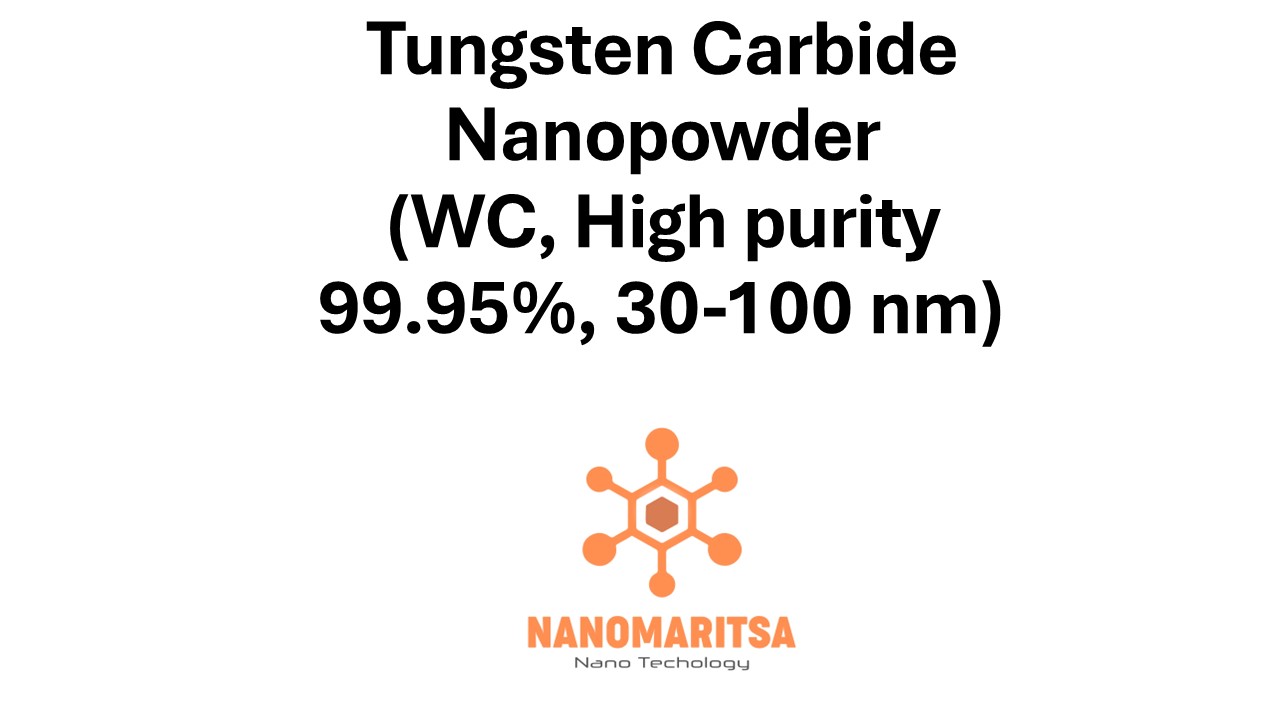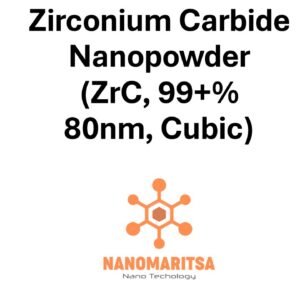Tungsten Carbide Nanopowder (WC, High purity, 99.95%, 30-100 nm)
€912.00
CompareTungsten carbide (WC) nanopowder, with a high purity of 99.95% and particle size ranging from 30 to 100 nanometers, is an advanced material celebrated for its exceptional hardness, wear resistance, and thermal conductivity. This cutting-edge nanopowder is widely utilized in demanding industrial, aerospace, energy, and manufacturing applications, where durability and performance are essential. Its nanoscale particle size and high purity ensure reliable integration into composites, coatings, and advanced systems.
Composition and Structure
WC (Tungsten Carbide):
Tungsten carbide is a compound of tungsten and carbon, forming a dense ceramic material renowned for its extraordinary hardness and durability. Its nanoscale size enhances surface area and reactivity, making it suitable for advanced composites, thermal management systems, and cutting-edge applications.
High Purity (99.95%):
The 99.95% purity minimizes impurities, ensuring consistent performance and reliability in precision applications such as aerospace components, energy systems, and cutting tools. High purity is vital for maintaining the mechanical and chemical properties required in demanding environments.
Particle Size (30-100 nm):
The particle size range of 30-100 nanometers provides a high surface area, improving sintering, dispersion, and mechanical reinforcement. This nanoscale size optimizes performance in applications requiring wear resistance, thermal management, and structural integrity.
Properties
Exceptional Hardness and Wear Resistance:
WC nanopowder is one of the hardest materials available, making it highly resistant to abrasion and wear. This property is crucial for cutting tools, abrasives, and wear-resistant coatings in industrial applications.
Thermal Stability:
Tungsten carbide exhibits remarkable thermal stability, retaining its mechanical properties at elevated temperatures. It is ideal for high-temperature environments, such as industrial furnaces, aerospace systems, and energy applications.
High Thermal Conductivity:
WC’s excellent thermal conductivity ensures efficient heat dissipation, making it suitable for thermal management systems in electronics and high-performance machinery.
Chemical Stability:
WC nanopowder is resistant to oxidation, corrosion, and chemical degradation, ensuring long-lasting performance in chemically aggressive environments.
Electrical Conductivity:
WC exhibits good electrical conductivity, enabling its use in energy storage devices, electrodes, and conductive coatings.
Applications
Wear-Resistant Coatings:
WC nanopowder is widely used to produce ultra-durable coatings for cutting tools, molds, and industrial machinery. These coatings significantly enhance component lifespan and reduce maintenance costs in high-friction environments.
Cutting Tools and Abrasives:
The hardness of tungsten carbide makes it an ideal material for cutting tools, drills, and grinding wheels used in machining and manufacturing processes.
Thermal Management Systems:
Tungsten carbide is employed in heat exchangers, thermal barrier coatings, and other systems requiring efficient heat dissipation in high-temperature environments.
Energy Storage and Conversion:
WC nanopowder enhances the performance of batteries, fuel cells, and supercapacitors. Its conductivity and chemical stability improve efficiency and longevity in energy systems.
Aerospace Applications:
WC nanopowder is used in the production of aerospace components, such as turbine blades, nozzles, and thermal shields. Its high melting point and wear resistance ensure reliability under extreme conditions.
Biomedical Tools and Devices:
Due to its hardness, chemical resistance, and biocompatibility, WC is used in surgical instruments, dental tools, and wear-resistant biomedical devices.
Recent Advancements and Research Contributions
University of Cambridge, UK:
Cambridge researchers are investigating WC nanopowder for advanced wear-resistant coatings and high-performance ceramics in aerospace and industrial applications.
Massachusetts Institute of Technology (MIT), USA:
MIT is exploring WC nanopowder for additive manufacturing processes and energy storage systems, focusing on thermal and mechanical optimization.
Tsinghua University, China:
Tsinghua University is developing WC-based composites for improved wear resistance and thermal stability in industrial machinery.
National University of Singapore (NUS):
NUS scientists are advancing WC nanopowder applications in hybrid nanocomposites and energy storage technologies.
Recent Developments
- Additive Manufacturing: WC nanopowder is being integrated into 3D printing for the production of complex, high-performance components.
- Hybrid Materials: Combining WC with other nanomaterials is unlocking new functionalities for energy systems, coatings, and composite materials.
- Eco-Friendly Production: Advances in sustainable synthesis methods are improving the scalability and environmental impact of WC nanopowder manufacturing.
Future Prospects
Tungsten carbide nanopowder (WC, High Purity, 99.95%, 30-100 nm) is a cornerstone material in modern industry, offering exceptional mechanical, thermal, and chemical properties. As research and technology evolve, WC nanopowder is poised to:
- Revolutionize high-performance coatings for industrial and aerospace applications.
- Enable innovations in energy storage and thermal management systems.
- Enhance the efficiency and durability of cutting tools and biomedical devices.
This advanced material exemplifies the power of nanotechnology to drive innovation across industries. Its unique combination of properties, scalability, and reliability ensures its relevance in next-generation technologies for years to come.
| Measurement (gr) | 100 grams, 500 grams, 1000 grams |
|---|






